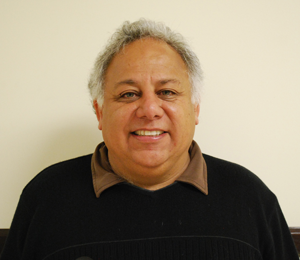I have some very exciting news from CSTA to share-out with all of you! Recently, Jake Baskin, our Executive Director for CSTA, announced on the Voice that CSTA, in partnership with the California Reading and Literature Project (CRLP), UC-San Diego’s Center for Research on Educational Equity, Assessment, & Teaching Excellence (CREATE), Education Studies Department (EDS), and the San Diego Education Research Alliance (SanDERA housed in the Economics Department), were awarded a $3 million dollar grant to address the equity gap for English Learners (ELs) in taking AP CS Principles courses.
For the past 30 years, I have worked at Sweetwater High School and for the Sweetwater Union High School District in National City and Chula Vista, CA. The high school and district I work for have large, significant populations of both ELs and reclassified ELs, and, from my personal perspective, I have observed the lack of educational opportunities for EL students to take rigorous and engaging academic courses such as Advanced Placement (AP) courses including AP Computer Science Principles (AP-CSP).
Some of the main reasons I was drawn into teaching high school AP (and non-AP) computer science courses were to provide equity access and to broaden participation of underserved and underrepresented groups in CS, which include women and students of color; but as the grant proposal argued successfully, the “opportunity gap in CS for ELs are even more profound.” The number of ELs taking AP courses are very low (7%) and ELs enrolled in AP CSP are significantly lower; for example, only 5% of students enrolled in AP CSP courses across the state of New Mexico are identified ELs and the numbers are similar for the region of San Diego County in Southern California and the state of Arizona.
I have met and taught many EL and reclassified EL children throughout my teaching career (I am a credentialed bilingual teacher). I specifically target and recruit EL students to take the AP CSP course in my high school and throughout the Sweetwater Union High School District. EL students can and are successful if EL pedagogy and strategies are embedded and implemented in the classroom. EL students can and will make significant contributions to our society, nationally and globally, in the field of CS and will help our society solve critical problems if given the opportunity to become part of the CS community. This work begins by recruiting and supporting EL students to take and successfully complete AP CSP as well as other CS courses.
Recognizing that current and former EL students are a profoundly underrepresented and underserved subgroup in Computer Science, CSTA, CRLP, CREATE, EDS, and SanDERA formed a partnership for this grant proposal and were awarded $3 million dollars to address this gap. With these resources, they aim to provide supports for schools and teachers to increase the opportunity for EL equity access and, thus, increase the number of ELs that are taking the AP CS Principles (AP CSP) course specifically
Although there are significant institutional barriers for ELs to have the opportunities to take and engage courses with rigorous academic content, such as having their schedules pre-determined with ELD courses, entering and exiting the ELD program by being reclassified, “research demonstrates that ELs fare better linguistically and academically” when taking rigorous courses such as the AP CSP course.
Additional significant barriers that exist in this opportunity gap for ELs to take AP CS Principles is the lack of supportive teacher professional development for those teaching ELs. Also absent is adequate CS curriculum that has EL pedagogy integrated and embedded within it. CSTA, CRLP, CREATE, EDS, and SanDERA will work in partnership to design and develop PD, training, and CS curriculum that has integrated and embedded in its foundation and core EL pedagogy and strategies, and to evaluate the program’s impact on teachers and students.
This PD, training, and CS curriculum will be targeted for the aforementioned three states: San Diego County in Southern California, Arizona, and New Mexico. Offered for the first time this summer 2020, the week-long PD, following-up training and EL-AP CSP adapted curriculum will launch in the three aforementioned communities/regions. Later, all resources will be made available to CSTA chapters across the states, which will help form Professional Learning Communities that will use the training and EL-AP CSP resources for the benefit of our EL children.
I feel that it is very important to mention that CSTA, specifically Executive Director Jake Baskin and the CSTA team, in partnership with my colleagues and good friends whom I have worked with over the past several years with AP CSP and Computer Science Education space: Associate Director Susan Yonezawa of UC-San Diego’s CREATE; Education Studies professors Megan Hopkins and Beth Simon, Economics Professor Julian Betts, who is also the Director of SanDERA and, and the team from the CRLP led by Executive Director Debbie Costa-Hernandez, has formed a partnership with our local CSTA chapter and several in Arizona and New Mexico toto address the gaps in equity, gender, and diversity in CS through the work proposed in this grant.
I am truly excited to work with all of these people and organizations to attempt to address and decrease the equity gap and increase the number of EL students that are taking AP CSP, and to share the training and resources developed through this grant with our CSTA chapters and you, our members of CSTA!
Contributions to this post were made by Dr. Susan Yonezawa of UCSD CREATE, CSTA Executive Director Jake Baskin’s Post on the Voice, and the proposal itself; thank you all!

9-12 Representative
